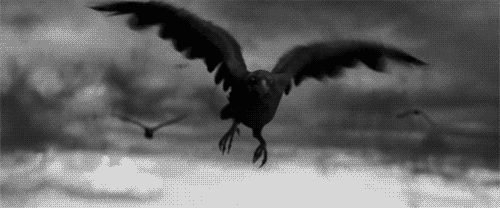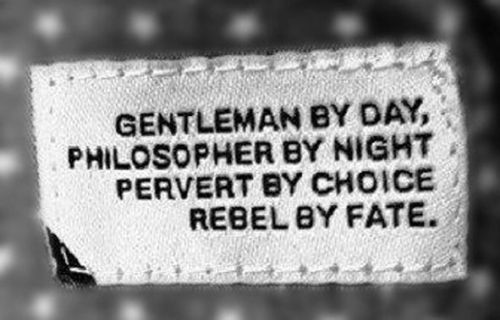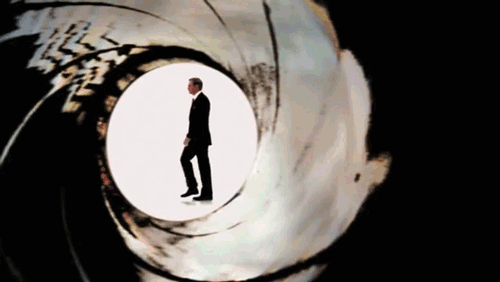
Charles Laughton (1 July 1899 – 15 December 1962) was an English Academy Award-winning stage and film actor, screenwriter, producer and two-time director.
While best known for his historical roles in films, he started his career as a remarkable stage actor. During a time when many serious stage actors despised the motion picture medium, seeing it only as a source of income, Laughton showed keen and serious interest in the pioneering possibilities of film, and later other media, such as radio, recordings, and TV, proving that quality work could be made available to audiences other than theatre-goers. He became an American citizen in 1950.
Laughton was born in Scarborough, Yorkshire, England, the son of Robert Laughton by his wife Elizabeth (née Conlon). His mother was a devout Catholic and he attended Stonyhurst College, a Jesuit school, in Lancashire, England. He served during World War I (in which he was gassed) first with the 2/1st Battalion of the Huntingdonshire Cyclist Regiment and later with the 7th Battalion of the Northamptonshire Regiment.
He started work in the family hotel business, while participating in amateur theatricals in Scarborough. Finally allowed by his family to become a drama student at RADA in 1925, Laughton made his first professional stage appearance on April 28, 1926 at the Barnes Theatre, as Osip in the comedy The Government Inspector, in which he also appeared at the London Gaiety Theatre in May. Despite not having the looks for a romantic lead, he impressed audiences with his talent and played classical roles in two plays by Chekov, The Cherry Orchard and The Three Sisters. He played the title role in Arnold Bennett's Mr Prohack (Elsa Lanchester was also in the cast), Agatha Christie's Hercule Poirot in Alibi, the title role in Mr Pickwick after Charles Dickens, Tony Perelli in Edgar Wallace's On the Spot and William Marble in Payment Deferred. He took this last play across the Atlantic and in it he made his debut in the USA on September 24, 1931, at the Lyceum Theatre (New York). He returned to London for the 1933-34 Old Vic Season and was engaged in four Shakespeare roles (as Macbeth and Henry VIII, Angelo in Measure for Measure and Prospero in The Tempest). In 1936 he went to Paris and on May 9 appeared at the Comedie Francaise as Sganarelle in the second act of Moliere's Le Medecin malgré lui, the first English actor to appear at that theatre, where he acted the part in French and received an ovation.
Laughton commenced his film career in England while still acting on the London stage. He took small roles in three short silent comedies starring his wife Elsa Lanchester, Daydreams, Blue Bottles and The Tonic (all 1928) which had been specially written for her by H. G. Wells. He made a brief appearance as a disgruntled diner in another silent film Piccadilly with Anna May Wong in 1929. He appeared with Elsa Lanchester again in a "film revue," featuring assorted British variety acts, called Comets (1930) in which they duetted in 'The Ballad of Frankie and Johnnie', and made two other early British talkies: Wolves with Dorothy Gish (1930) from a play set in a whaling camp in the frozen north, and Down River (1931) in which he played a murderous, half-oriental drug-smuggler.
His New York stage debut in 1931 immediately led to film offers and Laughton's first Hollywood film was The Old Dark House (1932) with Boris Karloff in which he played a bluff Yorkshire businessman marooned during a storm with other travellers in a creepy mansion in the Welsh mountains. He then played a demented submarine commander in The Devil and the Deep with Tallulah Bankhead, Gary Cooper and Cary Grant and followed this with his best-remembered film role of that year as Nero in Cecil B. DeMille's The Sign of the Cross.
He also turned out a number of other memorable performances during that first Hollywood trip, repeating his stage role as a murderer in Payment Deferred, playing H. G. Wells's mad vivisectionist Dr. Moreau in Island of Lost Souls, and the meek raspberry-blowing clerk in the brief segment of If I Had a Million that was directed by Ernst Lubitsch.
He also turned out a number of other memorable performances during that first Hollywood trip, repeating his stage role as a murderer in Payment Deferred, playing H. G. Wells's mad vivisectionist Dr. Moreau in Island of Lost Souls, and the meek raspberry-blowing clerk in the brief segment of If I Had a Million that was directed by Ernst Lubitsch.
His association with film director Alexander Korda began in 1933 with The Private Life of Henry VIII (loosely based on the life of King Henry VIII of England), for which Laughton won an Academy Award. However, he continued to act occasionally in the theatre, and his American production of Life of Galileo by (and with) Bertolt Brecht is legendary.
Laughton returned to Hollywood where his next film was White Woman (1933) in which he co-starred with Carole Lombard as a cockney river trader in the Malaysian jungle. Then came The Barretts of Wimpole Street (1934) as Norma Shearer's malevolent father; Les Misérables (1935) as Javert, the police inspector; Mutiny on the Bounty (1935) as Captain Bligh, one of his most famous screen roles, co-starring with Clark Gable as Fletcher Christian; and Ruggles of Red Gap (1935) as the very English butler transported to early 1900s America.
Back in England, and again with Alexander Korda, he played the title role in Rembrandt (1936). In 1937, also for Korda, he starred in an ill-fated film version of the classic novel, I, Claudius, by Robert Graves, which was abandoned during filming owing to the injuries suffered by co-star Merle Oberon in a car crash. (Out-takes from this film provided the material for a remarkable BBC TV documentary in 1965 entitled "The Epic That Never Was," narrated by Dirk Bogarde.)
After I, Claudius, he and the ex-patriate German film producer Erich Pommer founded the production company Mayflower Pictures in the UK, which produced three films starring Laughton: Vessel of Wrath (1938), based on a story by W. Somerset Maugham, in which Laughton's wife Elsa Lanchester co-starred; Sidewalks of London, a story about London street entertainers that also featured Vivien Leigh and Rex Harrison; and Jamaica Inn, with Maureen O'Hara and Robert Newton, based on a novel about Cornish smugglers by Daphne du Maurier, and the last film Alfred Hitchcock directed in Britain before moving to Hollywood in the late 1930s. The films produced were not successful enough, and the company was saved from bankruptcy when RKO Pictures offered Laughton the title role of Quasimodo in The Hunchback of Notre Dame (1939). Laughton and Pommer had plans to make further films, but the outbreak of World War II, which implied the loss of many foreign markets, meant the end of the company.
Laughton's film roles in the 1930s were among his finest and consisted almost entirely of the costume and historical drama parts for which he is best remembered (Nero, Henry VIII, Mr. Barrett, Captain Bligh, Rembrandt, Quasimodo and others). In his modern-dress film roles in his 1940s movies his acting style often led to variable results, particularly in a number of roles for which he was not ideally cast. He played an Italian vineyard owner in California in They Knew What They Wanted (1940); a South Seas patriarch in The Tuttles of Tahiti (1942); an American admiral in Stand by for Action (1942); a butler in Forever and a Day (1943); and an Australian bar-owner in The Man from Down Under (1943).
Still, some of these post-thirties performances could be remarkable when he came across a good script or a perceptive director, such is the case of a cowardly school-master in occupied France in This Land is Mine (1943), by Jean Renoir, in which he engaged himself most actively,in fact, while Renoir was still working in an early script, Laughton would talk to him about Alphonse Daudet's story "The Last Lesson", which suggested to Renoir a relevant scene of the film. He gave also an interesting portrait of a henpecked husband who eventually murders his wife in The Suspect (1944), directed by Robert Siodmak, who would become a good friend of Laughton. He played sympathetically an impoverished composer-pianist in Tales of Manhattan, and managed to transmit the eagerness of a little man who suddenly gets his only big chance to have success. He would also star in an up-dated version of Oscar Wilde's The Canterville Ghost (1944), and in spite of Wilde's original flavour being mangled in order to turn the story in a piece of wartime propaganda, he was able to recover irony and weary melancholia of the character as Wilde originally devised him.
Apart from these, he would enjoy his work in two comedies he made with Deanna Durbin, It Started with Eve (1941) and Because of Him (1946). He also seemed to enjoy himself both as a blood-thirsty pirate in Captain Kidd (1945) and as a malevolent judge in Alfred Hitchcock's The Paradine Case (1948). Laughton was on top form again as a megalomaniac press tycoon in The Big Clock (1948).
He had supporting roles as a Nazi in pre-war Paris in Arch of Triumph (1948); as a bishop in The Girl from Manhattan (1948); as a seedy go-between in The Bribe (1949); and a kindly widower in The Blue Veil (1951). He played a Bible-reading pastor in the multi-story A Miracle Can Happen (1947) but his sequence was deleted and replaced with another featuring Dorothy Lamour, and in this form the film was re-titled On Our Merry Way. However, an original print of A Miracle Can Happen was sent abroad for dubbing before the Laughton sequence was deleted and in this form it was shown in Spain under the title Una Encuesta Llamada Milagro.
He had supporting roles as a Nazi in pre-war Paris in Arch of Triumph (1948); as a bishop in The Girl from Manhattan (1948); as a seedy go-between in The Bribe (1949); and a kindly widower in The Blue Veil (1951). He played a Bible-reading pastor in the multi-story A Miracle Can Happen (1947) but his sequence was deleted and replaced with another featuring Dorothy Lamour, and in this form the film was re-titled On Our Merry Way. However, an original print of A Miracle Can Happen was sent abroad for dubbing before the Laughton sequence was deleted and in this form it was shown in Spain under the title Una Encuesta Llamada Milagro.
Laughton made his first colour film in Paris as Inspector Maigret in The Man on the Eiffel Tower (1949) and hammed it up enormously alongside Boris Karloff as a mad French nobleman in a version of Robert Louis Stevenson's The Strange Door in 1951. He was a tramp in O. Henry's Full House (1952) in which he had a one-minute scene with Marilyn Monroe. He became a pirate again, buffoon-style this time, in Abbott and Costello Meet Captain Kidd (1952). He guest-starred in an episode of the Colgate Comedy Hour on TV which also featured Abbot and Costello and was notable for his delivery of the Gettysburg Address. He played Herod Antipas in Salome (1953, with Rita Hayworth in the title role) and repeated his role as Henry VIII in Young Bess (1953). He returned to England to star in Hobson's Choice (1954) directed by David Lean.
Laughton received Academy Award and Golden Globe nominations for his role as Sir Wilfrid Robarts in the screen version of Agatha Christie's play Witness for the Prosecution (1957).
He played a British admiral in Under Ten Flags (1960) and worked for the only time with Laurence Olivier, in Spartacus (1960) as a wily Roman senator.
His final film was Advise and Consent (1962), for which he received favorable comments for his performance as a southern U.S. Senator (for which accent he studied recordings of the late Mississippi Senator John Stennis). Laughton worked on the film, which was directed by Otto Preminger, while he was dying from bone cancer.
The Night of the Hunter
Laughton took a stab at directing a movie, and the result was The Night of the Hunter (1955), starring Robert Mitchum, Shelley Winters and Lillian Gish. This movie is often cited among today's critics as one of the best movies of the 1950s., and has been selected by the United States National Film Preservation Board for preservation in the Library of Congress. Unfortunately, at the time it was originally released it was a critical and box-office failure, and Laughton never had another chance to direct a film. He did not appear in the film, but worked solely as a director. The documentary Charles Laughton Directs The Night of the Hunter by Robert Gitt (2002) features preserved rushes and outtakes with Laughton's audible off-camera direction.
The Night of the Hunter
Laughton took a stab at directing a movie, and the result was The Night of the Hunter (1955), starring Robert Mitchum, Shelley Winters and Lillian Gish. This movie is often cited among today's critics as one of the best movies of the 1950s., and has been selected by the United States National Film Preservation Board for preservation in the Library of Congress. Unfortunately, at the time it was originally released it was a critical and box-office failure, and Laughton never had another chance to direct a film. He did not appear in the film, but worked solely as a director. The documentary Charles Laughton Directs The Night of the Hunter by Robert Gitt (2002) features preserved rushes and outtakes with Laughton's audible off-camera direction.
He had a long and resilient marriage to actress Elsa Lanchester, although, in her autobiography, Lanchester revealed that Laughton was gay. According to her own account, she was shocked to learn about this, but eventually decided to remain married to him. However, she claims as a result of this, she decided not to have children with him. The decision caused him great grief, as he longed to become a father, as many friends of Laughton, among them Maureen O'Hara and Stanley Cortez.
His wife Elsa Lanchester appeared opposite him in several films, including Rembrandt (1936) and The Big Clock (1948). They both received Academy Award nominations for their performances in Witness for the Prosecution (1957) - Laughton for Best Actor, and Lanchester for Best Supporting Actress - but neither won.























No comments:
Post a Comment